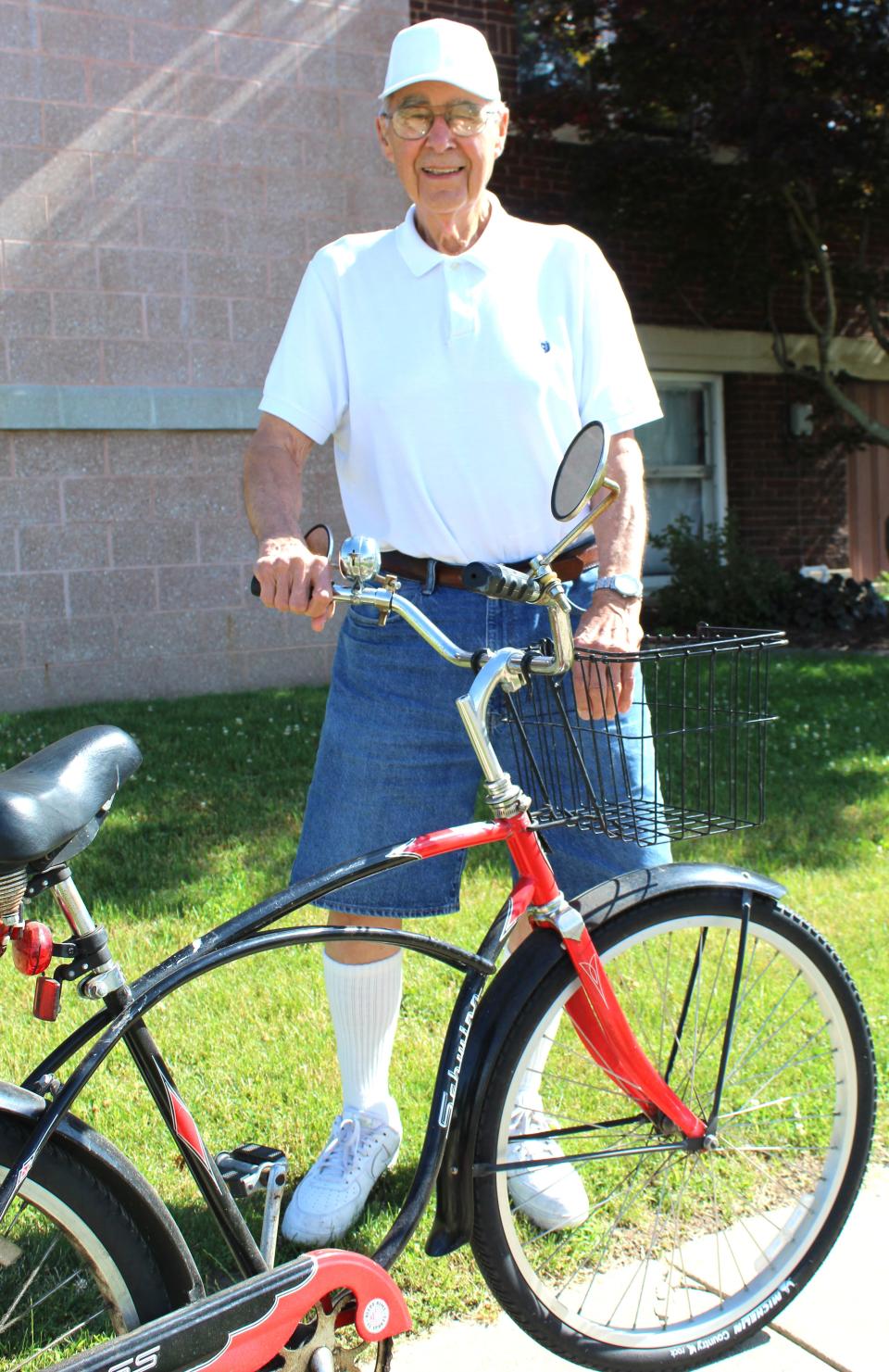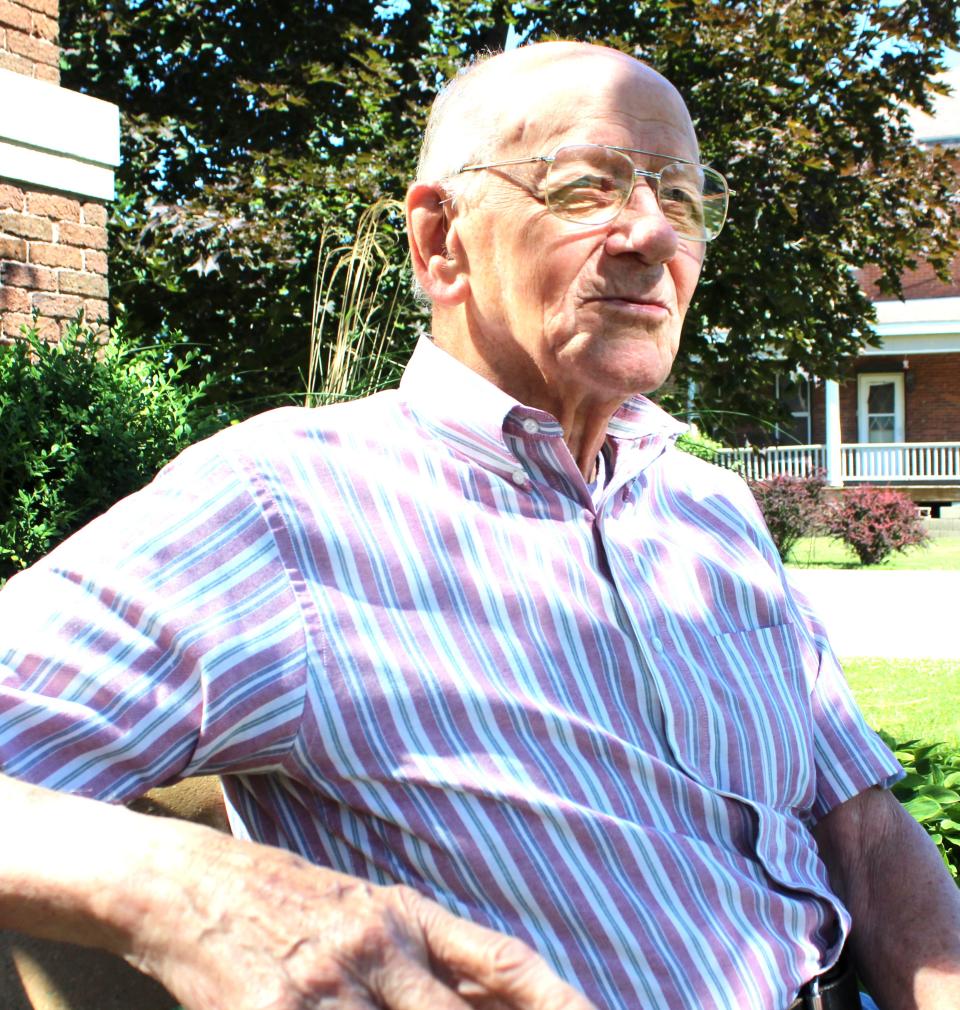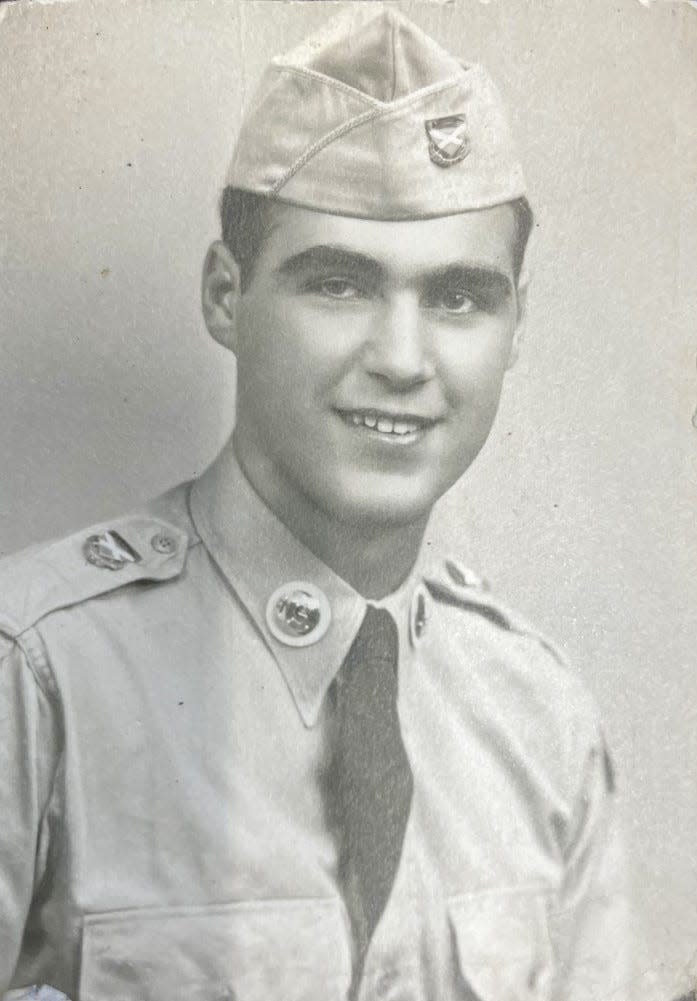Two Korean War veterans, two views of war
Wayne German has lived in Bronson for a long time. Robert Webber moved to the community not long ago.
They met at Bronson Polish Festival last year and became friends, partly because they both are veterans of the Korean War, and partly because both are friendly and happy to shoot the breeze.
Each man had a very different experience in the military even though both were in active duty in Korea, a war that raged June 25, 1950-July 27, 1953. About half of the military was sent to Germany rather than Korea.
Wayne German
German was drafted into the U.S. Army Infantry after he graduated from high school in Orland, Ind. in 1952. He served from 1953-54, starting with training at Camp Atterbury in Indiana.
He remembers it all.
“After four months of basic training, a six-day delay en route and 17 days going over by ship, we got combat-ready,” German said.
Combat-ready, perhaps, but he never faced the enemy.
“We laid in our fox hole for two weeks then they said the war was over — me and Brown, a black man from Detroit,” German said. “He was a nice guy. I would have lent him anything, but my toothbrush.”
Next, German was selected to guard prisoners of war.
“They picked me out because of my size,” he said “I used to be 6-2 and a half.”
He made three, five-day trips moving the POWs.
“I talked to the prisoners,” German said. “They didn’t want to fight. They just wanted to go home — to North Korea.”
The men who were supposed to be enemies could communicate in spite of the language barrier.
Then German was sent to NCO school — noncommissioned officer training — and came out a staff sergeant. When he was eligible for discharge, they asked him to stay with the Army.
“Sir, I’m going home,” was his answer.
“I was blessed. I didn’t get shot at,” German said. “But it was not fun. I still remember those two weeks. I can’t imagine getting shot at on top of it.”
German never saw his fox hole buddy again and only attended a few informal reunions soon after the war. Army life was not for him.
German and his first wife, Wylla, had three sons, Scott, Todd and Mark. All were tall like their father and played basketball at Bronson High School and in college.
His second wife, Eunice, died five years ago, but German carries on. He's still active in at St. Mary’s Catholic Church. Now he’s nearly 90, but German worked until he was 80 — first at Douglas Auto Tech until retiring, then post-retirement at Bronson Precision Products.
When he’s just traveling around Bronson alone, not with his new lady friend, German rides his bike.
Robert Webber
Webber moved to Bronson from the Sturgis, after living in several places, the longest on the banks of Dark Lake. That's another story.
But when he served in the Korean War from 1951-1954 with the Marine Corps, Webber's home was Waterloo, Iowa.
“I was a BAR man in the infantry,” Webber said. “I carried a Browning Automatic Rifle that had a 20-round clip. We were divided up into four-man fire teams. Three fire teams to a squad. Every fire team had a BAR man — that was my job.”
With a grin, Webber admitted he was sent to Korea rather than Germany “because I got busted. I wasn’t behaving myself.”
The details don’t matter now, but he admits to getting into trouble a time or two in the military. And that was after being "asked" to leave high school in ninth grade.
In fact, at 16, Webber tried to lie about his age to join the military, but they checked his birth records at the courthouse.
Finally he could join.
“I met a man in Korea, Lt. Jim Marsh, things change for the better. I call it my self-improvement plan,” Webber said. “It honestly was a good life. I can’t complain about any of it. I was in four major campaigns. Pushing the enemy out. Holding our position after we took it. I got 16 months in Korea."
And he would have taken more if allowed.
“I loved it. Three years — I didn’t hate any of it,” he said.
Well, except the duty as military police.
“I didn’t enjoy MP,” he admitted.
When he came back home, Webber married Claudette from his hometown and they had a son and a daughter.
Back in high school she wouldn’t have given him the time of day, but people change.
“We were married 64 years, nine months and five days,” Webber said. “She passed away three years ago on my birthday.”
Webber stayed connected with the Marine Corps attending all reunions.
“When we get together they tell me what I did,” he said with a twinkle in his eye.
And Webber himself is full of stories. Old and new friends gather ‘round to hear his tales, including military historians who want to learn what really happened out there. Not just what was written in reports.
These two Korean War veterans had unique experiences.
German says in the fox holes, “No one is brave.” Everyone, including “enemy” POWs just want to go home.
Webber, on the other hand, encourages young people to consider the military.
“I try to explain that war is not hell. Sometimes you get to excel. It’s something that has to be done," he said.
What they do agree on is their friendship, as they both approach their 90th birthday..
“Wayne German is a hell of a good friend,” Webber said.
“You should talk to Robert Webber. He was in the Korean War too,” German said.



This article originally appeared on The Daily Reporter: Two Korean War veterans — two views of war

